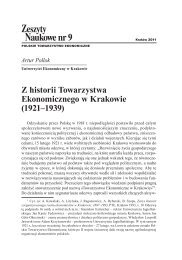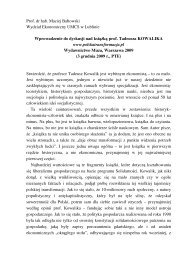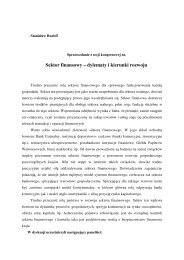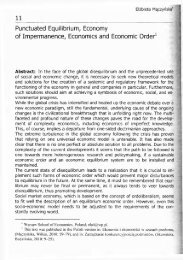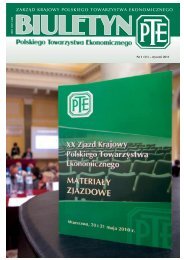NESTA PROJECT: FINE ARTSITS AND INNOVATION
NESTA PROJECT: FINE ARTSITS AND INNOVATION
NESTA PROJECT: FINE ARTSITS AND INNOVATION
Create successful ePaper yourself
Turn your PDF publications into a flip-book with our unique Google optimized e-Paper software.
Close or strong networks seem particularly important in the<br />
early stage of an idea, where intense experimentation and<br />
collaboration require close contact and constant<br />
communications. Ideas at this stage are often not properly<br />
formulated, much less written down; risk is high and rewards<br />
uncertain. The supportive environment and local, tacit<br />
knowledge are vital in helping with everything from finance<br />
to premises or staff. Once ideas are more developed and<br />
can be ‘coded’, loose international networks and peer<br />
review become important. Supply chain networks, often<br />
more ‘visible’ than peer to peer relationships, take ideas or<br />
concepts through a series of phases, drawing on different<br />
resources at each stage.<br />
From the outside, the networking involved in cultural activities<br />
often seems incestuous and exclusive, posing a problem for<br />
public policymakers keen to open up the cultural sectors to<br />
a more diverse range of producers (Oakley, 2006, Andari et<br />
al., 2007). In addition, there is often a tension between the<br />
trust needed in the risky, experimental stages of creation and<br />
the need to be sufficiently porous to allow new talent into<br />
the system (Bilton, 2007).<br />
In the next section, we will look at the literature, both on<br />
artists’ working lives and on their training and education. In<br />
doing so, we are trying to consider artists both as individuals<br />
and to the extent they form a definable ‘community’ of<br />
practice (Wenger, 1998).<br />
As Gertler (2003) argues, while the ‘communities of practice’<br />
school of thought stresses community knowledge and norms<br />
as conditions for knowledge exchange, it sometimes<br />
neglects the social context and the relationship between<br />
tacit and codified knowledge. In other words, the ability of<br />
workers to absorb and deploy tacit knowledge may depend<br />
inter alia on their level of education and the common<br />
socialisation processes that have produced them.<br />
40









